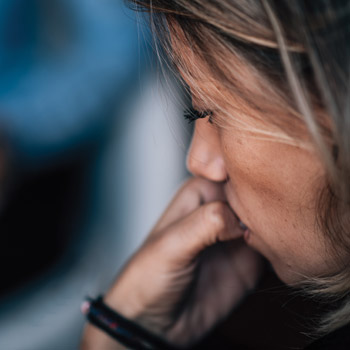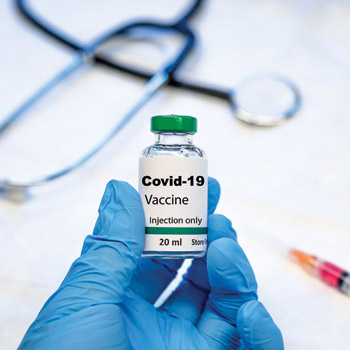Daylight saving time may be linked to medical errors
The economic benefits of changing the clocks twice a year are miniscule and need to be weighed against increased motor vehicle accidents and the increased rate of myocardial infarction following the time change.
Daylight saving time ended this month, but the American Academy of Sleep Medicine wants it to end for good. That's because a growing body of evidence shows that the acute transition from standard to daylight saving time poses significant public health and safety risks, the organization said in a position statement published online in August by the Journal of Clinical Sleep Medicine.
In one of the most recent of such studies, researchers from the Mayo Clinic examined data from a health care organization with sites across multiple U.S. states to assess voluntarily reported patient safety-related incidents in the week following the transition into and out of daylight saving time from 2010 to 2017. Patient safety-related incidents likely resulting from human errors spiked significantly (by 18.7%) in the week after “springing forward” and nonsignificantly (by 4.9%) in the week after “falling back,” according to results published online in August by the Journal of General Internal Medicine.

Lead author Bhanu Prakash Kolla, MD, an associate professor of psychiatry and psychology at Mayo Clinic College of Medicine in Rochester, Minn., recently offered information about the sleep science underlying these results, as well as how physicians and health systems can mitigate the impact of seasonal sleep disruptions.
Q: What led you to study this issue?
A: My wife was complaining about spring forward, about how she got less sleep and it's made her more clumsy around the kitchen. So this, like all good ideas, germinated from there. Both of us are physicians, and as a sleep physician, you're always thinking of how important sleep is and what happens when people don't get enough sleep.
Q: What was your reaction to the findings?
A: What we were expecting was a change in errors, and we knew that it would likely be human errors. … If we look at the raw numbers, both spring and fall, there are more errors in the week following the time change, but it's not statistically significant. Once we pulled out just the human errors, which we defined as based on what we think is likely going to get affected—how humans react, pay attention to detail, what could be impacted by sleep deprivation—we clearly saw that that went up. So it lined up.
The one unexpected result initially—but as we thought more about it, maybe something we should have expected—was we thought in the fall, there'd be fewer errors because there is at least a theoretical possibility that people are getting more sleep because they have more time in bed. And we didn't see that. … Even at that time, people are sleeping poorly; it's just that changing the clock throws off our body clock. So even with the extended time in bed, people aren't actually sleeping well, and we are as a society so chronically sleep deprived that maybe an hour one day doesn't make all that much of a difference.
Q: What are some potential reasons for the increase in safety-related incidents following the start of daylight saving time?
A: We have two possible explanations. One is you're sleeping poorly, you have an hour less than that, and consistently that's been shown to cause a reduction in the total sleep time. Even though we know this change in time is coming, most of us either don't try and get more sleep or, even if we try, our body can't get more sleep—so you are partially sleep deprived. Partial sleep deprivation does impact our ability to function: Our reaction times are increased, our ability to pay attention to detail and carry out monotonous tasks deteriorates. The other thing that happens is if you're normally somebody who is waking up at 7 to get to work at 7:30 or 7:45, you have a certain amount of time where you have what we call sleep inertia. So after you wake up, it takes a little time for us to be fully awake, alert, and functioning at our best. But with the spring forward, you're actually waking up before that time can dissipate. So the sleep inertia doesn't dissipate, you're actually at work, and the first hour or two, you're still a little bit groggy because the sleep inertia hasn't gone away. And that also, we speculate, maybe increases risk.
Q: What are the biggest takeaways of the study?
A: Like most studies, we end with “We need more studies.” Replicating it in a larger data set I think will add more impetus to what we are saying, which is, “At this time, the economic benefits of changing the clocks twice a year really are miniscule, which needs to be factored against our study showing increased patient errors.” There are studies showing increased motor vehicle accidents, there are actually some studies which show that the rates of myocardial infarction go up after the clocks change, there are a significant number of downsides to it. So is it really worthwhile continuing with this?
Q: What can physicians do to mitigate the impact of daylight saving time?
A: One is to prioritize sleep. When clocks are changing, anticipate that, prioritize sleep, and get more time in bed. For all of us, life happens. Life circumstances are different for a lot of us, work sometimes unfortunately does mean we prioritize work or livelihood over sleep. But wherever we can, making those marginal changes, making sure we get adequate sleep, and, when we don't, being aware that that impacts our ability to function individually, as a group, team, organization.
Q: In general, is seven hours the bare minimum of sleep required?
A: Seven is good, but all of us are different. In general, at least from a clinical standpoint, we always tell people, “Let your body do what it wants.” So fall asleep when you start feeling sleepy, and wake up without an alarm clock. That's the amount of sleep you need. And if you are waking up to an alarm clock or groggy going through the day, weekends get a little better when you can sleep in. That means you're maybe not getting enough, and at that time you need to start prioritizing sleep, maybe getting to bed a little earlier, seeing what you can do to wake up a little later.
Q: What could health care systems do to improve this issue?
A: Provide more education to health care workers, recognize that this is a high-risk period, have systems in place to try and catch potential errors … also maybe consider delayed start times, at least for the first week after clocks have changed, and play around with their shifts so people can get a little more sleep.
Q: What are your next steps?
A: Based on this, we are in the process of exploring additional safety measures. The idea would be double-checking dosing, medications, blood products, surgery sites, so having more oversight in areas where the risk could increase, at least during this time period. … Our idea is to try and work on some of these data to figure out what we can do to mitigate this risk and go back maybe one or two years down the road to see what changes we have made, if they've made a difference. But it is still early days in terms of policy development, at least as an organization.





